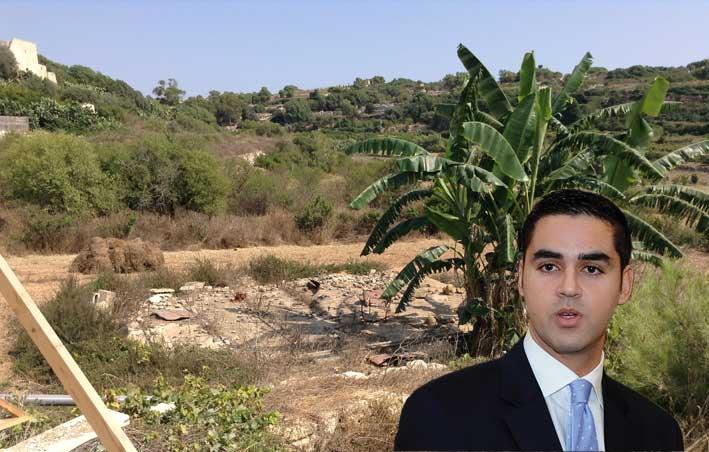Transport Minister Ian Borg will not resign over a testimony in a libel case won by The Malta Independent which the courts found to be not credible, and, when confronted by The Malta Independent, he expressed reservations over certain parts of the sentence handed down by the courts.
The courts yesterday found the testimony delivered by Borg in a libel case instituted by a third party against The Malta Independent to be ‘hard to believe’.
The case dealt with the sale of a piece of land in Dingli back in 2014, by a man with mental health issues to then Parliamentary Secretary Ian Borg.
Mark Farrugia had filed a libel case against Rachel Attard, Stephen Calleja and David Lindsay on behalf of The Malta Independent on Sunday over an article titled ‘Family incensed as PS buys land from mentally-ill father’ that was published in 2015. Farrugia was one of the middlemen in the sale. The court, presided over by Magistrate Victor Axiak, ruled in favour of The Malta Independent, which was represented by lawyer Peter Fenech.
Borg was asked by The Malta Independent whether he would be handing in his resignation after the courts found that his testimony was “not credible” and implied that a mentally-ill man had been taken advantage of in a property purchase.
“That is what you and your newspaper are saying in the spin you gave to what the court respectfully said”, Borg said.
In its sentence, the courts said that it had found Borg’s testimony and that of his middleman that they did not know of Anthony Scicluna’s mental health conditions to not be credible.
Borg neglected to answer questions on this particular part of the sentence despite repeated questioning.

The patch of land in question, pictured in 2015
Speaking to this newsroom, Borg said that while he respects the courts, it doesn’t mean that one cannot have reservations on certain aspects of a sentence. “The important thing is that we always respect court sentences”, he said.
Borg clarified that it was not him who had filed the libel, noting that he believes in the work journalists do and that this newsroom had included the replies he had given to questions sent in full within the article.
Indeed – it was Mark Farrugia, who acted as the middleman for Borg in the property deal, who filed the libel case against this newsroom.
He noted that the most important point from the sentence is that it is not true that the middleman took the person who had sold him the land – Anthony Scicluna – drinking before the deal was signed.
In its sentence, the court said that while Scicluna was drinking in Paceville on the night between the Saturday and Sunday and that he went to drink at the Dingli Labour Party club on Sunday morning, it was not proven that Farrugia had taken Scicluna out drinking. The court also said that it was not proven that Farrugia and another man, Franco Sammut, had picked him up on the Monday morning. However, the court said that it could not just consider these two declarations on their own without weighing them in the context of the whole article – which had Borg, then a parliamentary secretary, as the prime subject.
Borg also noted that the court sentence said that the magistrate had found it difficult to believe that in a small village like Had-Dingli, he wouldn’t know that the person had mental health problems.
Indeed, the sentence read that "the court also finds it very difficult to believe that Ian Borg, who admitted to knowing Scicluna for around 18 years and knew of his problems with his family, could not then know of the state of his mental health."

To this, Borg said that he had signed three contracts with this same person – a contract before the one mentioned in the article with his mother and 14 siblings, the contract which was the subject of the article, and another contract with his mother and 14 siblings.
He said that because of “family disputes”, there are arguments that he had no mental health problems six months before, and no mental health problems six months after.
He notes that there is a mistake in the sentence where the psychiatrist was reported to have testified that it was only two years after he had bought the property that an application had been put forward for Scicluna to be interdicted – an application which Borg said had been rejected by the courts, noting that it was Scicluna himself who had told him this, and that this shows that in the eyes of the law he was mentally fit to sign a contract.
“Last time he saw me he told me ‘don’t bother that they tried to interdict me, I still have my vote and I will still vote for you’, with a smile on his face”, Borg said, noting that not even he was happy with that application.
“If your mother and 14 siblings come with you to sign a contract, and they say that there is no problem to sign the said contract – why should it be me to say that there is a problem?”, he said.
Answering a question wherein it was indicated that the fact that there were three contracts does not justify the signing of one particular contract, Borg said that it is the job of the public notary, who had testified in court, to determine such matters.